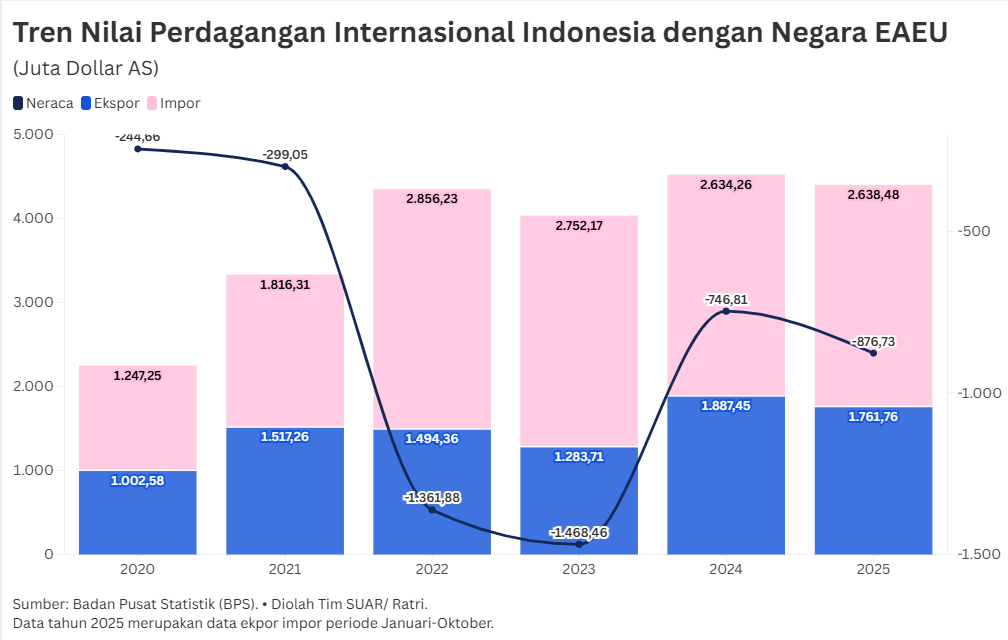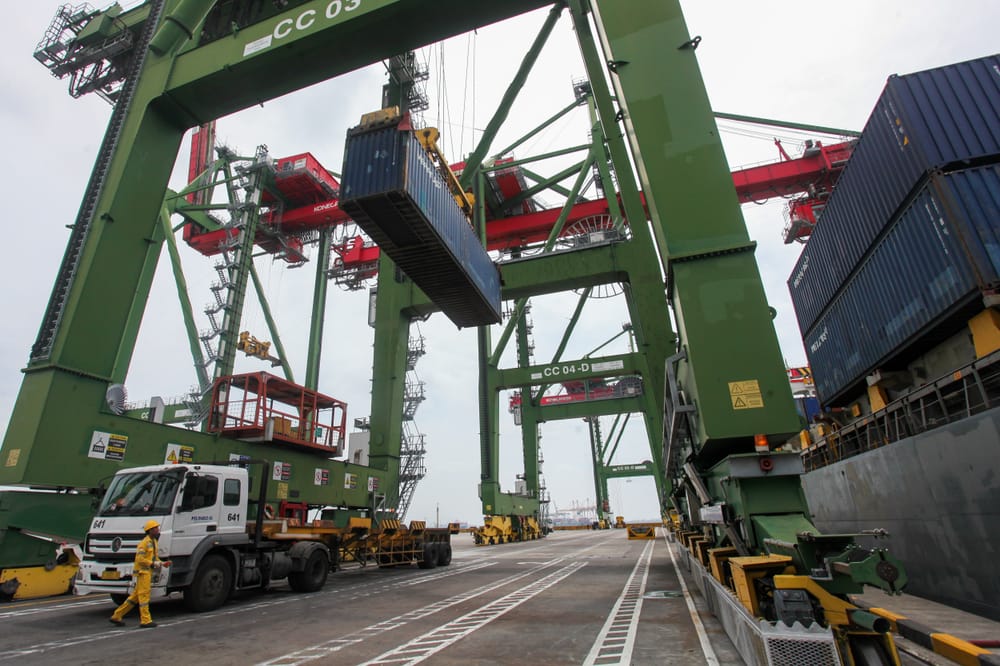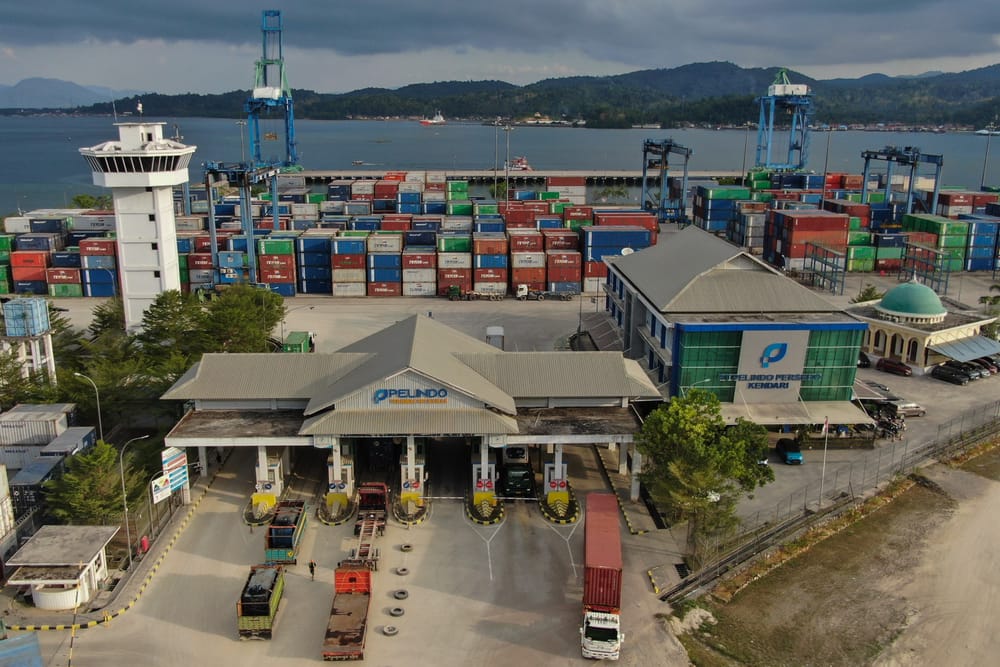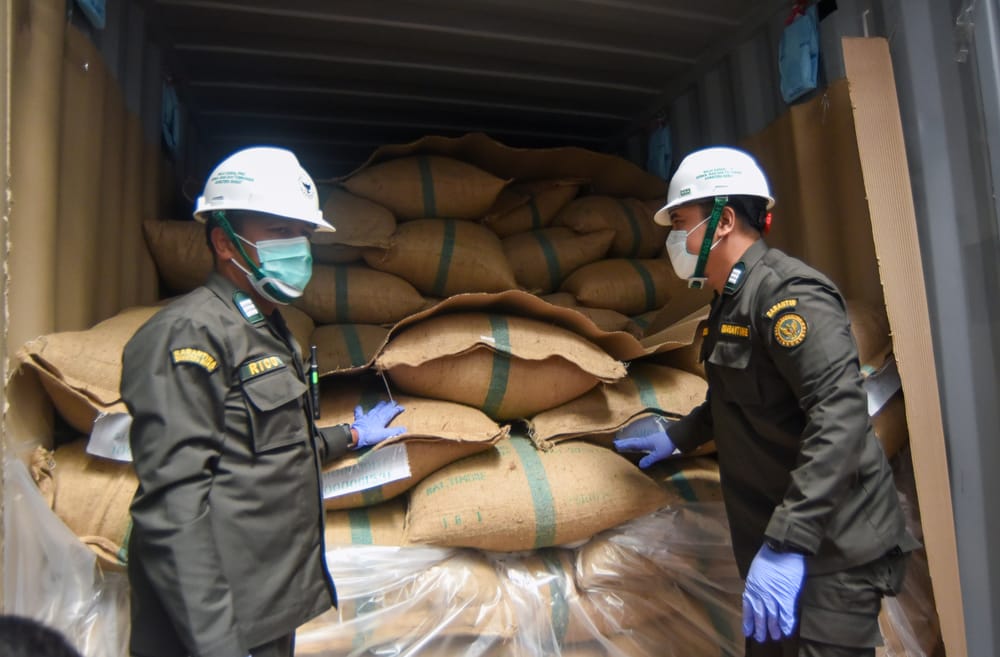In the past month, Indonesia has successfully signed two trade agreements with the European Union and Canada.
The Indonesia-European Union Comprehensive Economic Partnership Agreement (IEU-CEPA) and the Indonesia-Canada Comprehensive Economic Partnership Agreement (ICA-CEPA) are expected to multiply export performance in the coming years after implementation.
"Our commitment with business actors is to increase total trade and exports to the European Union. Then, for Canada, which is currently US$3.5 billion, the hope is that it can double after implementation," said Minister of Trade Budi Santoso at the Strategic Forum Indonesia-Canada CEPA and Indonesia-European Union CEPA at the Ministry of Trade in Jakarta, Monday (29/9/2025).
Meanwhile, according to data from the Ministry of Trade, the value of Indonesia's exports to the European Union last year reached US$30 billion, while exports to Canada were only US$3.5 billion.
Indonesia targets that these two agreements will be substantially completed and can be implemented immediately after 2026.
According to Budi, these two trade agreements are an important momentum to strengthen Indonesia's trade position in the global market amidst the current uncertain global conditions.
With this agreement, IEU-CEPA can eliminate up to 98% of tariffs, reduce trade barriers for goods and services, and open up investment opportunities.
Sectors that benefit Indonesia include palm oil, textiles and footwear, while the European Union benefits from agricultural food products, automotive and the chemical industry.
Meanwhile, through the Indonesia-Canada CEPA, more than 90% or around 6,573 Indonesian tariff posts obtain preferences in the Canadian market.
Potential Indonesian products such as textiles, footwear, furniture, processed food, light electronics, automotive, and even swallow's nests are predicted to become more competitive.
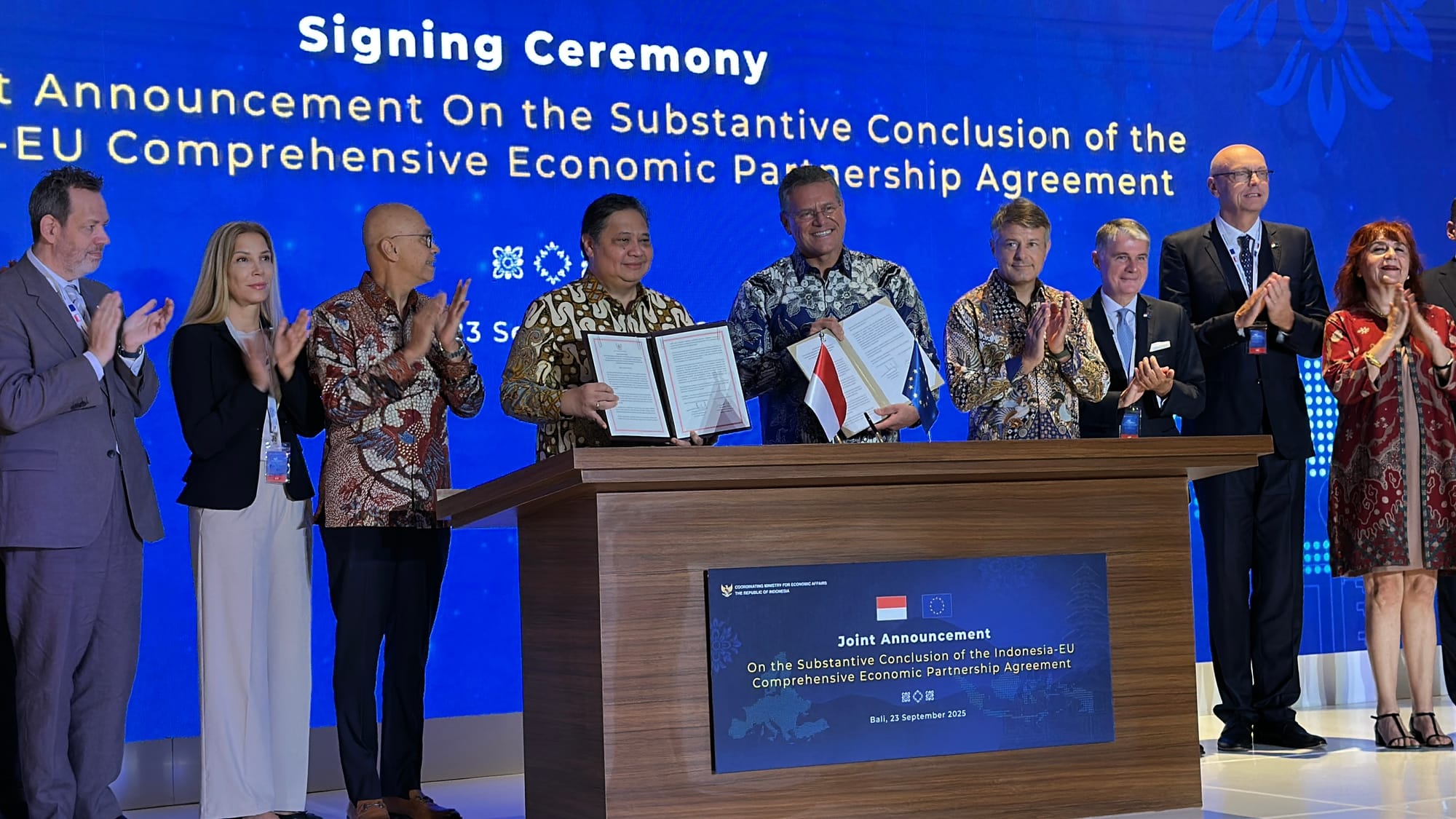
Director General of International Trade Negotiations at the Ministry of Trade, Djatmiko Bris Witjaksono, said that there are 5,441 export products from Indonesia that will be free from import duties to Canada after the signing of the ICA-CEPA trade agreement.
Examples of the products are processed food products, cakes, biscuits, bread, then manufactured products such as cables.
"Then optical fiber, home decoration equipment, spare parts, accessories, automotive, that will all be 0 percent," he said.
The implementation of this 0 percent tariff will be carried out in stages, while, in the next five years, other sectors that will get the lowest tariff include wood, fruits, marine products and so on.
Nano-Nano to Canada
One of the companies that has explored exports to Canada is Konimex Group, which has been exporting products to the maple leaf country since June 2025.
Chief Strategy Officer of Konimex Group, Edward Setiawan Joesoef, said that Konimex's product that has entered the Canadian market and become a superior product is Nano Nano.
Edward said that whether it is difficult or not to enter the Canadian market all depends on the product, whether the exported product meets market criteria and is in demand by the community there, the point is that the exported product must have high standards.
“The government has opened trade access through ICA-CEPA, making it easier for business actors to export, now the task is to improve product quality,” he said.
He said Canada is known to have one of the strictest food regulation and supervision systems in the world, implemented through the Canadian Food Inspection Agency (CFIA).
“Exporting to Canada is a strategic step for Konimex in expanding its international market penetration,” he said.
All food products, he explained, must meet high standards in terms of safety, ingredient composition, and nutritional labeling, so not all products can be easily accepted in the market.
Meanwhile, compliance with Canadian export regulations is an initial challenge, as well as a validation of the quality of Konimex products in meeting export market demands.
“With ICA-CEPA, of course Konimex's export activities will be easier and run smoothly,” he said.
In his presentation, Konimex also collaborated with the Indonesian Trade Attaché in Ottawa, Canada, who played an active role in encouraging the expansion of market access and facilitating exports of Indonesian products.
Through this support, Konimex has succeeded in establishing exclusive cooperation with distribution partners who will be the initial gateway to enter strategic markets in North and South America, including the United States and Brazil.
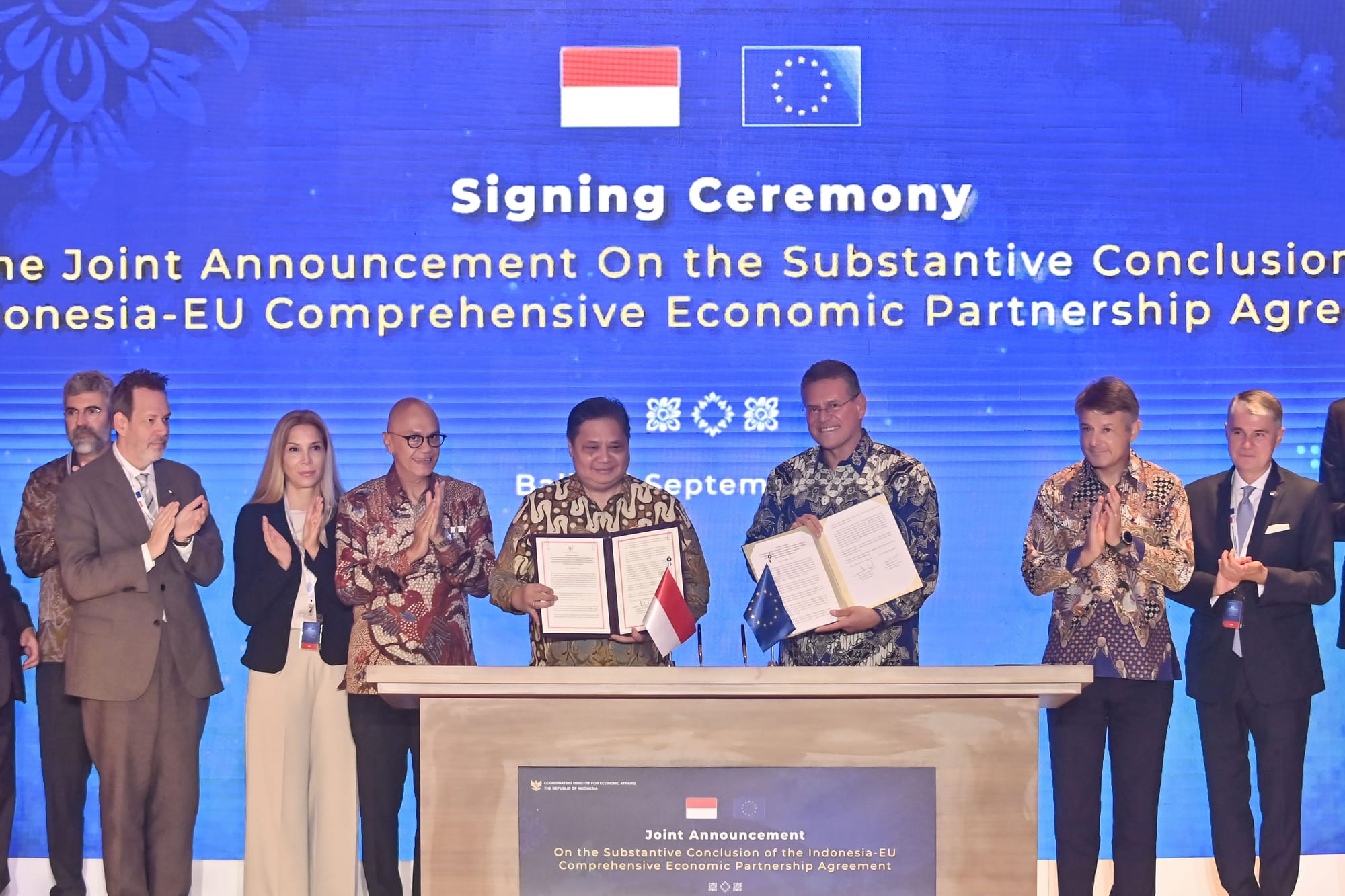
The Indonesian Ambassador to Canada, Muhsin Syihab, said that the ICA-CEPA trade agreement is a new chapter in Indonesia-Canada trade and the bonus is that it can provide wider access to the North American market.
“ICA-CEPA will encourage Canada to increase investment in Indonesia, especially in the mining, transportation and telecommunications sectors,” he said.
According to him, ICA-CEPA makes Indonesia increasingly attractive as a market destination for Canada. The products of the two countries are considered not to compete with each other, but are complementary. This also opens the door for foreign direct investment (FDI) from Canada.
“This agreement also provides strategic benefits. Indonesia is increasingly firmly establishing its influence in North America, while Canada is getting a new route to enter the Southeast Asian market through Indonesia,” he said.
Strategic Door
Chairman of the Permanent Committee for International Agreements of Kadin and Apindo, Mufti Hamka St Rajo Basa, said that the IEU-CEPA and ICA-CEPA trade agreements that Indonesia has signed are not just a matter of export-import but a strategic door to encourage investment, strengthen the competitiveness of national industries and open up new jobs.
Mufti emphasized the importance of the private sector's readiness, especially UMKM, to be able to meet Canadian and European Union market standards. This includes improving product quality, compliance with environmental regulations, and adopting digital transformation.
“CEPA is not just an instrument for increasing exports and imports but also investment, its scope is very broad,” he said.
Meanwhile, the General Chairperson of the Indonesian Oil Palm Entrepreneurs Association (Gapki), Eddy Martono, said that even though tariff barriers have been removed and Indonesia already has a trade agreement with the European Union through IEU-CEPA, palm oil exports still have to pass through a "high wall" in the form of European Union deforestation regulations or European Union Deforestation Regulation (EUDR).
This EUDR is still the main enemy for palm oil businesses, because the European Union still considers Indonesian palm oil to be an environmentally unfriendly product. This assumption must be changed.
“IEU-CEPA is good news, but if the EUDR cannot be fulfilled, then zero tariffs are useless. Our exports will still be hampered,” Eddy told SUAR in Jakarta (29/9)
Eddy reminded that the key to the success of Indonesian palm oil exports is not only the elimination of tariffs, but also the ability to meet non-tariff regulations. Currently, the government and business actors are finalizing a strategy so that the implementation of the EUDR does not burden the palm oil industry, especially smallholder farmers.





